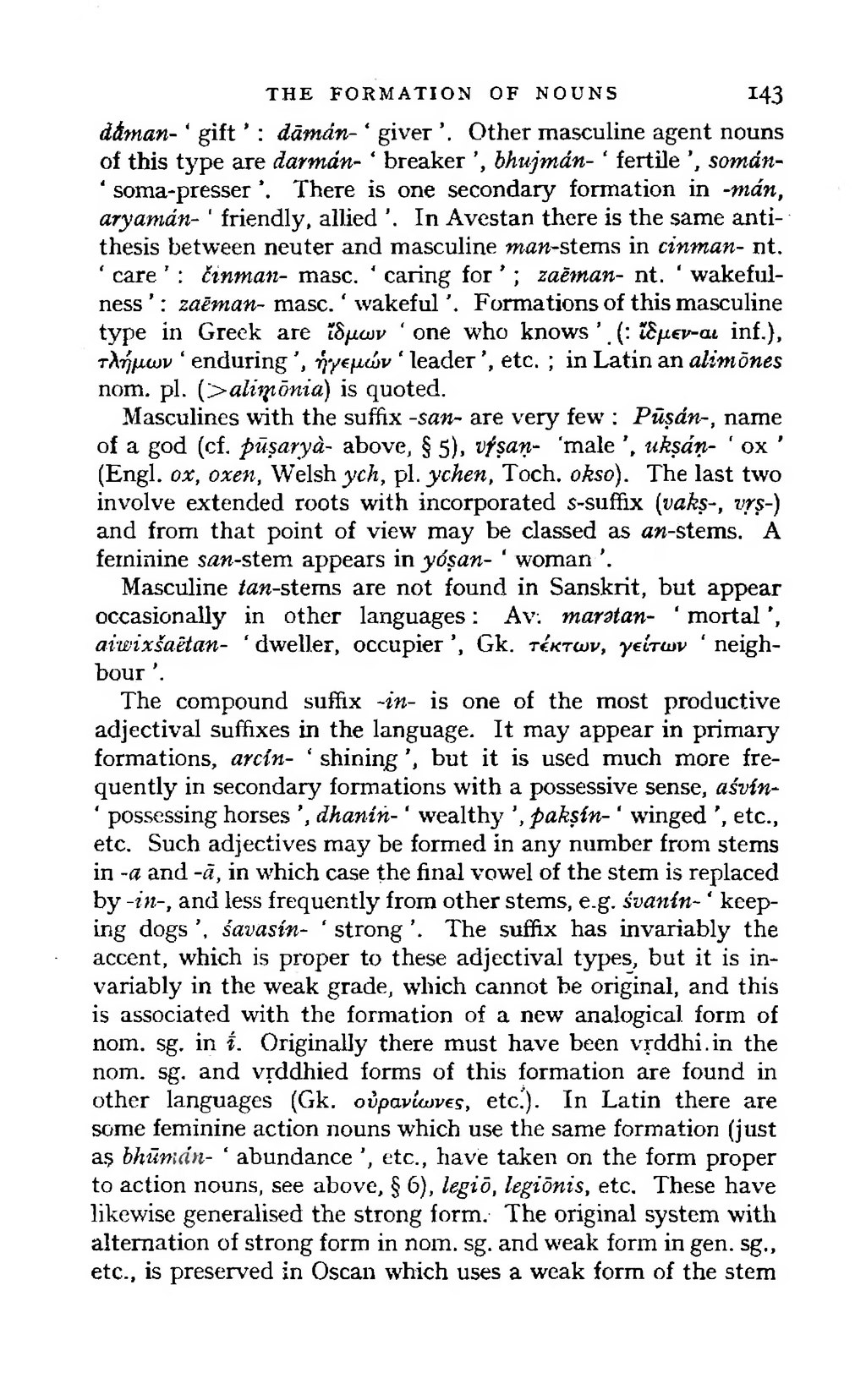THE FORMATION OF NOUNS I44 in the oblique cases : dat. sg. leginei, etc. The use of this suffix in a specifically possessive sense is found also in Iranian, e.g, Av. pardnin- ‘ having wings but examples are comparatively few. A fair number of adjectives are formed with the accented suffix -vin : sragvin- * wearing a garland tapasvin- ' heated tejasvin - ' brilliant etc. This complicated suffix which is un- known outside Indo-Aryan, seems to be a contamination of the suffixes - van - and -in-. Beside it there is a rarer suffix -min (like -mant beside -vant), e.g. vdgmin - 1 eloquent gomin - * possessing cows svamin- ' owner, master ’ ( sva - * one's own *). §9. Adjectival Formations in -nt- It has been noted above that -n as a neuter suffix could in Indo-European take the extension -t. This appears regularly in Greek (v&o>p, vSaros etc.), and elsewhere there are traces of it, though not many (Skt, vdrimat -, etc.). The -t could also be added to the adjectival «-suffix, and the compound suffix so produced has proved more productive than the neuter -nt~. In Sanskrit it appears in the suffixes -ant, - vant and - mant , all of which are highly productive. The suffix -ant- appears in a small number of adjectives, namely brhdnt- f great mahdnt- * great rhant- ' small pfsant- 4 speckled ' and rusant- ‘ bright to which may be added the pronominal adjectives iyant- ( so much' and kiyant- f how much The first three have the proper adjectival accent, and in pfsant-, rusant- the apophony shows that the radical accent is unoriginal. Similar adjectives in Iranian are seen in bdrdzant- 1 high ' and mazant- * big These are related to neuters in the usual way (Av. barpzan- ‘ height mazan- * greatness ') but in this case the adjectival forms have received the t extension whereas the neuters have not. , These adjectives are sometimes referred to as being oTparti- cipial origin. This is obviously not so, since the specialisation of this suffix in participial use, though ancient, is nevertheless a secondary development. The common usage of the suffix in active participles had not been fixed at the time of the separa- tion of Hittite, because there the participles in -ant have a passive sense as opposed to the active sense which prevails in the rest of Indo-European : kunant- 1 slain J as opposed to Skt. ghndnt- 'slaying'. Both are specialisations out of a more
पृष्ठम्:The Sanskrit Language (T.Burrow).djvu/१५०
दिखावट

